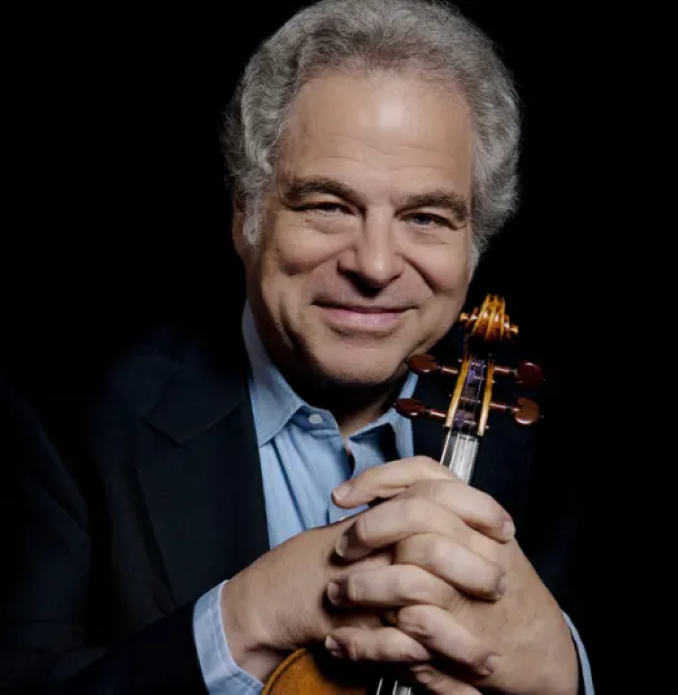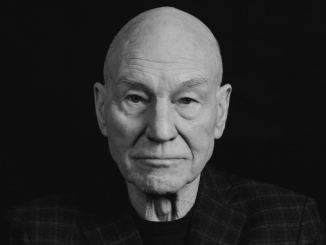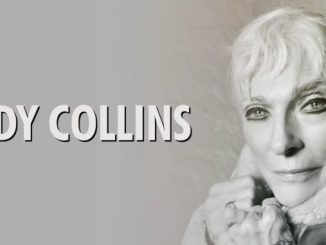Itzhak Perlman hardly needs an introduction. (Though the six page(!) biography in the programme of his recent recital at Roy Thomson Hall is certainly a handy reference.)
Following a childhood bout with polio, Perlman picked up the violin – first as a toy purchased by his mother, then with a teeny tiny beginner’s violin with which he wowed tutors and competition juries alike – and immediately established himself as a prodigy of stunning talent.
An Ed Sullivan Show appearance in 1958, at the age of thirteen, might have been his introduction to mass audiences, but the name Perlman was already the talk of the classical music world long before the precocious musician – and future advocate for disability rights – appeared on the world’s most popular talk show. By the time Perlman made his Carnegie Hall debut in 1963 at the age of eighteen, superstardom was all but assured.

The performance, I am reluctant to admit, did not get off to a strong start. Perlman’s – dare I say – perfunctory rendition of Jean-Marie Leclair’s Violin Sonata in D Major, Op. 9 No. 3 (1743) suggested Perlman’s awareness of the pedestrian nature of this largely forgotten work by a largely forgotten composer. (One who, as the programme notes hastened to acknowledge, is better known today for his grisly murder than for his musical accomplishments.)
Things instantly improved with the evening’s centrepiece, Beethoven’s Violin Sonata No. 9 in A major, Op. 47 (1803), also known as the “Kreutzer Sonata”, or, more aptly, the “Bridgetower Sonata” after the Afro-British violinist to whom it was originally dedicated, and who debuted the piece with Beethoven at the piano. The Bridgetower is a major accomplishment, alternatingly exuberant and lyrical, playful and romantic, and Perlman rendered it marvellously.
The remainder of the programme was a nice smattering of hits, including excerpts from Smetana’s My Homeland (1874-1879), Brahms’s Hungarian Dance #1 (1879, a perennial favourite), and an intriguing set of Fantasies (Fantasiestücke, 1849) by Schumann. Pianist de Silva, one of the great accompanists of the day and Perlman’s long-time musical collaborator, demonstrated throughout this selection why Perlman, Midori, Joshua Bell, and so many others continue to rely on him.
Perlman, a wonderful raconteur and dispenser of dad jokes, announced many of these works live from the stage, choosing to keep the audience guessing at what might come next. Tchaikovsky’s Chant sans Paroles (“song without words”) (1867) was introduced, for example, by a groan-inducing pun about life imprisonment.
Inevitably, the time came for Perlman’s, by my estimation, 1,000th rendition of John Williams’s Theme From Schindler’s List (1993), the piece with which Perlman is most closely associated, for better or for worse. Readers may recall I am a huge John Williams fan, and though some may find the Schindler emotionally manipulative – my mom calls it “schmaltzy” – I continue to find it irresistible, especially when played by the man who originated it. But yes, after 1,000 performances – assuming at least fifty a year, dating back to 1993 – one wonders whether Perlman ever grows tired of it.
Whether Perlman ever grows tired, at all, seems unlikely. At 78 years old, he maintains an impressively comprehensive touring schedule, all while keeping up his close affiliation with the youth-oriented Perlman Music Program founded by his wife Toby Perlman, making the requisite talk show (and Sesame Street) appearances, and generally serving as one of classical music’s great ambassadors, a title held by very few, including Perlman’s occasional trio-mates Yo-Yo Ma and Emanuel Ax. Though Ma was last here in 2022 for the TSO 100 Celebration, Ax is slated for an October 2024 recital at Koerner Hall. If Perlman is anything to go by, I suggest booking your tickets now.
***
For more on the Roy Thomson / Massey Hall season, click here.



